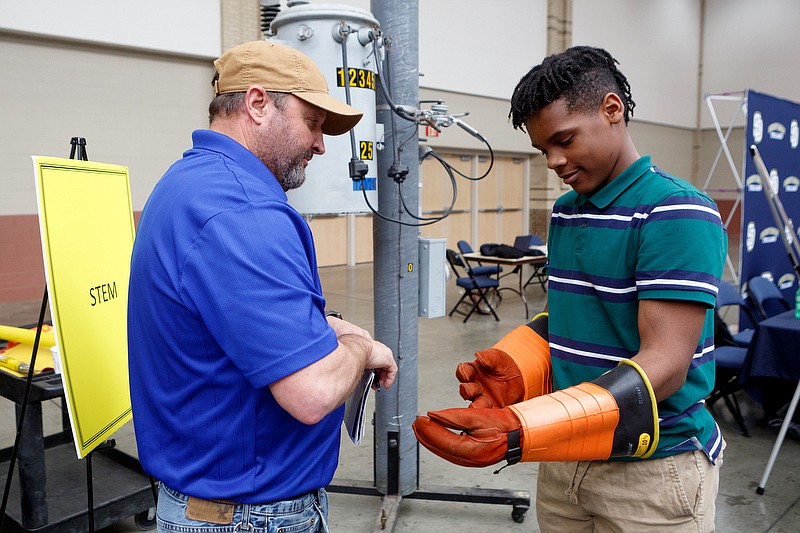SEAD (social, emotional and academic development) coaches should not be added to the next year's schools' budget unless Hamilton County Board of Education members can agree on what the coaches will do, how many of them there will be and whether they'll make a difference in student performance.
That was a main topic of discussion at Thursday night's board meeting, and the meeting ended without any agreement.
The budget is set for approval in April.
Coaches for every school and administrators for those coaches are part of Opportunity 2030, the district's new strategic plan that prioritizes "individualizing learning plans and personalizing learning environments for every student."
If we thought these coaches were the answer to helping turn around uneven academic growth in schools, tame growing discipline problems and reassure every student who comes from a less supportive home environment, we would heartily endorse their hiring.
But currently the district employs deans of students, school counselors, social workers, interventionists, instructional coaches, behavior intervention teachers, behavior education assistants and tutors to do some of the same work these coaches will be expected to do.
A current opening for a SEAD coach on the Hamilton County Schools website says this individual "serves as a member of the school-based support team by providing support and assistance to students, staff, and families using best practices for assisting individuals and groups of students through the application of positive behavior supports." Additionally, it says such a person will help implement social emotional learning and "supports success planning" and "help[s] coordinate functional assessments of behavior and behavior intervention plans that address students' challenging behaviors and provide a means to help students become more academically successful."
An opening for a district school counselor, meanwhile, indicates that person would, among other things, counsel "students on an individual or small-group basis to develop resolution and/or coping skills when dealing with personal problems related to school, home, health, and emotional issues that may impact educational achievement and /or school attendance."
A dean of students, according to another opening, "will think critically about ways to solve disciplinary and attendance issues, including academic and non-academic issues, in order to ensure that students are getting the support they need to maintain and/or improve high levels of academic performance," and an interventionist in still another opening will "provide interventions as needed in non-academic areas such as graduation rate, behavior and attendance."
You can see the overlap, and we've only cited three of the positions that are already a part of some or most district schools.
It reminds us of the growing bureaucracies of local, state and federal governments as well as the expanding hierarchy of non-academic positions created over the last several decades at public universities that has crowded out the importance of academic learning.
Parental supporters of SEAD coaches at the board meeting said they wanted a counselor for their children, teachers wanted out from under greater discipline responsibilities, and board members foresaw the coaches providing strength like a tough-love parent or a friendly but firm swim coach.
We don't agree with Tonya Dodd, chairwoman of the local chapter of Moms for Liberty, who compared the idea of SEAD coaches at the meeting to Marxist activism posing as academics, but we question why the coaches are needed when all the other social, emotional and academic development positions are already funded.
The overlap makes us wonder if these coaches could replace some of the other positions.
Despite the job description of the potential new hires, it seemed that student discipline -- when and how to apply it effectively -- was at the forefront of the school board members minds.
Acting chairman Joe Smith rightly noted schools "can't legislate morality," member Joe Wingate said behavior that disrupts the class will never go away, and member Rhonda Thurman said one more hire won't change a system of discipline that is already not working.
Instead of just blanketing schools with such coaches, then, why not pilot a small group of them in schools where they might do the most good? If after a year they've made a significant difference, more could be added in other schools. If they haven't, at least the district wouldn't have added one more layer of social/emotional bureaucracy.
